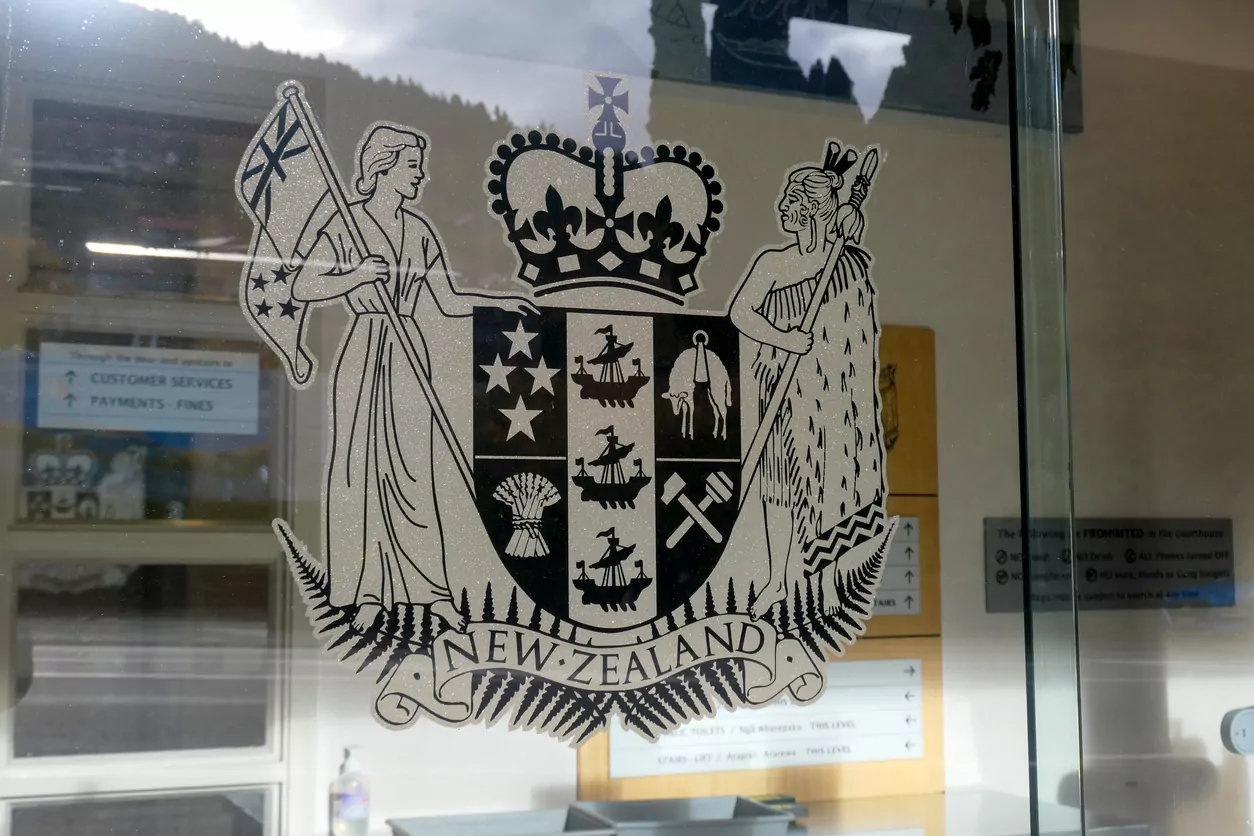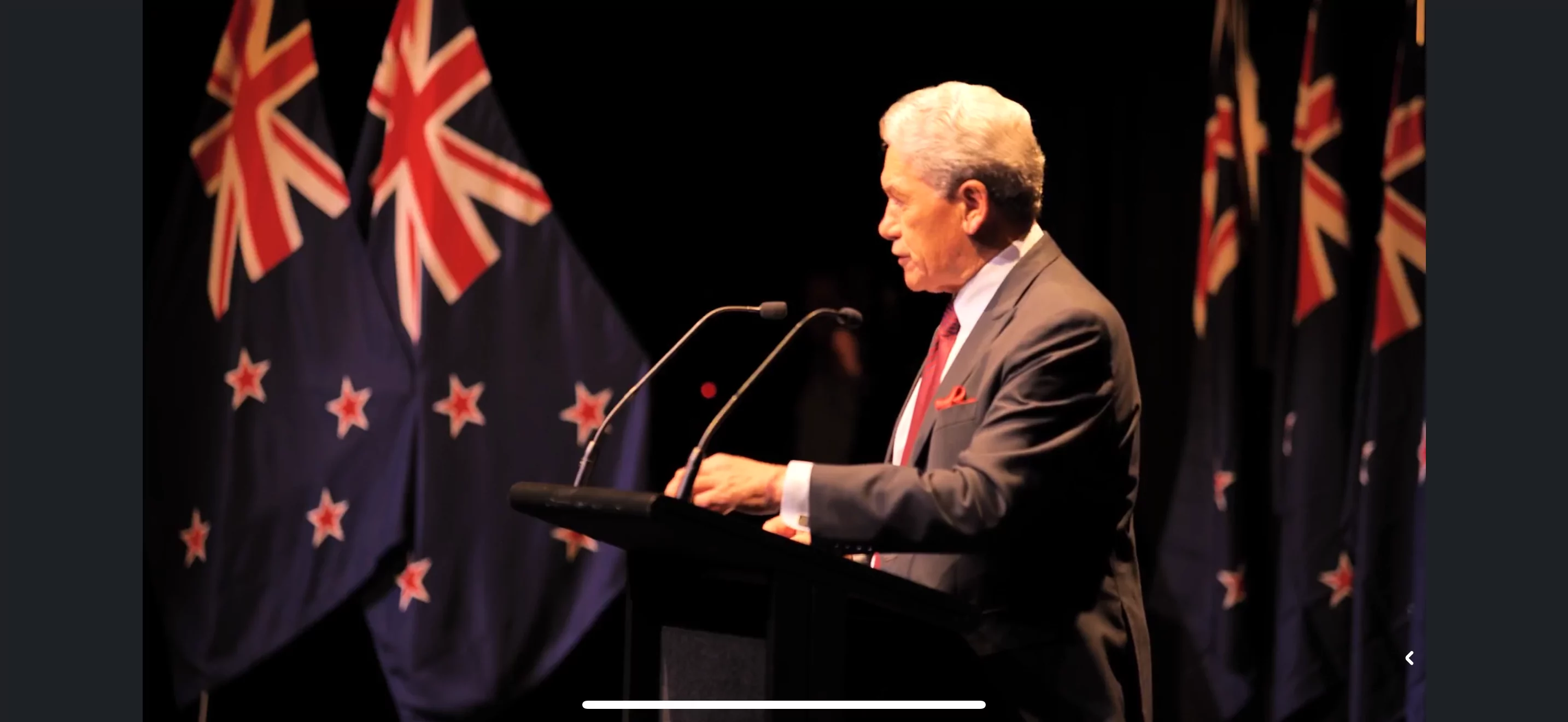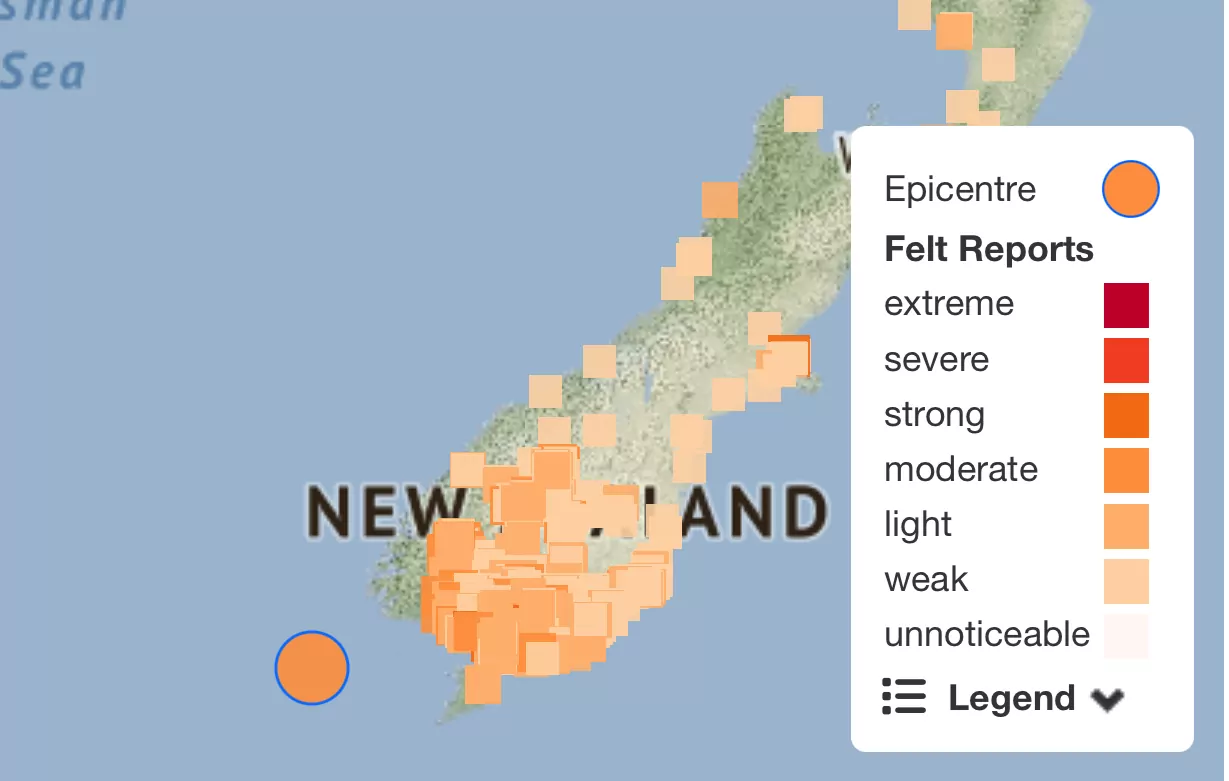Senior members of New Zealand’s legal community have voiced “grave concerns” over the coalition government’s proposed Treaty Principles Bill, urging Prime Minister Christopher Luxon and Attorney General Judith Collins to abandon the legislation.
In a formal letter addressed to the Prime Minister and Attorney General, 42 King’s Counsel outlined serious issues with the Bill, which aims to outline the principles of the Treaty of Waitangi.
The signatories argued that the Bill could undermine the long-standing partnership between the Crown and Māori by unilaterally altering the meaning of te Tiriti o Waitangi and its role in New Zealand’s constitutional framework.
“The Treaty of Waitangi is a binding agreement that forms the backbone of New Zealand’s constitutional arrangements,” the letter said.
The lawyers warned that imposing a new interpretation of Treaty principles without Māori consent would fundamentally alter these arrangements.
The coalition’s Treaty Principles Bill proposes replacing the existing Treaty Principles with a new set of principles, which are said to reflect the three articles of te Tiriti.
The lawyers, however, argue that the proposed principles distort the Treaty’s original meaning and could significantly limit Māori rights.
One of the most contentious aspects, the letter claims, is a principle that limits Māori rights to those that existed in 1840.
“The proposed ‘Principle 2’ retrospectively limits Māori rights and disregards the Crown’s Article 2 guarantee to Māori of tino rangatiratanga (chieftainship and self-determination),” the letter said, warning that the change could strip Māori of the right to self-governance promised by the Treaty.
The group expressed further concerns over a second principle, which they say fails to uphold Māori rights to cultural recognition and protection under New Zealand law.
“The proposed principle on equality fails to recognise Māori’s right to have their tikanga (customary law) respected,” they said. By excluding the impact of colonisation on Māori, the lawyers argue that the Bill disregards the inequalities created by Treaty breaches and entrenches a limited view of Māori rights.
The letter also criticised the process behind the Bill’s development, saying it lacked meaningful consultation with Māori and Treaty experts.
“There has been no opportunity for meaningful engagement, despite official advice urging targeted consultation with iwi and hapū,” it read.
The lawyers warned that the rushed timeframe and limited policy analysis would inevitably result in legal confusion and lengthy litigation.
The Waitangi Tribunal voiced concerns over the Bill, with the Tribunal calling it a “breach of the Treaty” that risks damaging social cohesion and the Māori-Crown relationship. The Ministry of Justice has echoed these concerns, warning that the Bill could undermine public confidence in New Zealand’s constitutional arrangements.
The lawyers called for the government to reconsider its approach to addressing Treaty-related issues and to initiate a broader, well-informed public discussion. “Whether constitutional reform is required is a complex and contentious issue. Any changes to incorporate te Tiriti should be approached with care and respect,” they said.
They argued that holding a referendum on such a significant constitutional issue, as the government plans, is inappropriate without thorough public engagement.
“The Treaty Principles Bill and the proposed referendum are not suitable methods to address such an important matter, especially when indigenous rights are at stake,” the letter stated.
The letter was signed by notable legal figures, including Nigel Hampton, Sir Hugh Rennie, Sarah Armstrong, Kerryn Beaton, and John Billington. They concluded by calling upon the government to respect the rule of law and New Zealand’s democratic principles, urging the withdrawal of the Bill.
READ FULL LETTER AND CITATION HERE:
13 November 2024
The Right Honourable Christopher Luxon
Prime Minister
Email: [email protected]
The Honourable Judith Collins KC
Attorney General
Email: [email protected]
Tēnā koutou
King’s Counsel express grave concerns about the Treaty Principles Bill
1. As senior members of the independent bar and legal profession, we have significant
concerns about the coalition government’s proposed Treaty Principles Bill. We outline
below our concerns regarding the substance of the Bill, its wider implications for New
Zealand’s constitutional arrangements and the process adopted.
Substance
2. The Treaty of Waitangi/te Tiriti o Waitangi1
is a binding agreement between the Crown
and Māori which is fundamental to New Zealand’s constitutional arrangements. Over the
past five decades, all three branches of government have recognised this:
(a) Legislature – Parliament has incorporated the Treaty into statute law by including
“Treaty Principles” clauses in a wide range of legislation.
2
(b) Judiciary – our courts have recognised that the Treaty is of “constitutional
significance”
3 and “part of the fabric of New Zealand society”
4
. They have
articulated the meaning of the statutory “Treaty Principles” in order to provide a
principled framework for assessing the Crown’s obligations to Māori.
(c) Executive – the Cabinet Manual, which provides a framework for policy formulation
and decision-making by the executive branch of government, recognises the Treaty
as a major source of the constitution, which accords “special recognition to Māori
rights and interests”.5
1
‘Te Tiriti o Waitangi’ is used to reflect that nearly all the chiefs that signed the Treaty signed the te reo Maori version of the
text.
2 There is currently reference to “Treaty Principles” in at least 40 pieces of legislation.
3 Trans-Tasman Resources v Taranaki-Whanganui Conservation Board [2021] NZSC 127 (SC), at [150]-[151], [296].
4 Huakina v Waikato Valley Authority [1987] 2 NZLR 188 (HC), at 210.
5 Cabinet Manual 2013, at 2.
2
3. These steps illustrate the recognition by successive governments over a long period of
their obligation to uphold the rule of law and our constitutional arrangements, including
the Crown’s guarantees under te Tiriti.
4. The existing “Treaty Principles”, which first appeared in the Treaty of Waitangi Act passed
in 1975, have been developed and applied by the Courts over the past 50 years. They now
shape the way in which the Crown, in specific circumstances, delivers on its obligations to
Māori. The main principles include partnership6
, active protection,7 equity8 and redress9
.
The Treaty principles are designed to reflect the spirit and intent of the Treaty as a whole
and the mutual obligations and responsibilities of the parties.10
They now represent
settled law.
5. The coalition government’s Treaty Principles Bill seeks to redefine in law the meaning of
te Tiriti, by replacing the existing “Treaty Principles” with new Treaty Principles which are
said to reflect the three articles of te Tiriti. The problem is that they do not. By imposing
a contested definition of the three articles, the Bill seeks to rewrite the Treaty itself.11
6. The Treaty Principles Bill would have the effect of unilaterally changing the meaning of te
Tiriti and its effect in law, without the agreement of Māori as the Treaty partner. In brief:
(a) The proposed “Principle 2” retrospectively limits Māori rights to those that existed
at 1840.
12 The Bill states that if those rights “differ from the rights of everyone”, then
they are only recognised to the extent agreed in historical Treaty settlements with
the Crown. This principle erases the Crown’s Article 2 guarantee to Māori of tino
rangatiratanga (chieftainship/self-determination/political authority in relation to
their communities, lands, and other taonga) provided in exchange for agreement by
Māori to the establishment of Crown kāwanatanga/governance. By recognising
Māori rights only when incorporated into Treaty settlements with the Crown, this
proposed principle also attempts to exclude the courts, which play a crucial role in
developing the common law and protecting indigenous and minority rights.13
(b) The proposed “Principle 3”, the right to equality, does not recognise the
fundamental Article 2 guarantee to Māori of the right to be Māori and to have their
tikanga Māori (customs, values and customary law) recognised and protected in our
law.14
As the Waitangi Tribunal has pointed out, “[p]eople in a liberal democracy
6 This principle recognises the Treaty as a partnership between the Crown and Māori in which both must act reasonably,
honourably and in good faith.
7 This principle recognises that the Crown has an obligation to actively protect Māori interests to the fullest extent practicable.
8 This principle recognises the Crown’s obligation to treat Māori equitably with other groups and to achieve equitable outcomes.
9 This principle recognises the Crown’s commitment to putting past wrongs right, which has occurred through historical Treaty
claims settlements.
10 New Zealand Māori Council v Attorney-General [1994] 1 NZLR 513 (PC) (Broadcasting Assets case).
11 Official advice is that the proposed principle said to reflect Article 2 is inconsistent with te Tiriti/ does not accurately reflect
Article 2 and fails to recognise the distinct status of Māori as the indigenous people of Aotearoa, which calls into question the
very purpose and status of the Treaty. Regulatory Impact Statement 28 August 2024 at Page 13. Official advice notes that the
underlying rationale for the principles as described in the ACT party policy relies on a novel reading of the Treaty that is not
supported by the available evidence. (Ministry of Justice briefing dated 9 August 2024 at paragraph 9).
12 Principles of the Treaty of Waitangi Bill, s 6; Regulatory Impact Statement 28 August 2024 at Page 3, 14
13 Minority rights are recognised in the New Zealand Bill of Rights Act 1990, for instance, the s20 right of minorities to culture.
14 The right of all New Zealanders to be treated equally under the law is provided elsewhere, in statutes such as the Bill of Rights
Act 1990 and the Human Rights Act 1993.
3
can and do have different rights”.15
Nor does it recognise the impact of colonisation
and past Treaty breaches on Māori, which have created profound inequalities.
7. Even if Parliament can legislate in this way (which is uncertain), it should not do so
because it is not for the government of the day to retrospectively and unilaterally
reinterpret constitutional treaties. This would offend the basic principles which underpin
New Zealand’s representative democracy.
8. Further, the Treaty Principles Bill would cause significant legal confusion and uncertainty,
inevitably resulting in protracted litigation and cost. We consider it would have the
opposite effect of its stated purpose of providing certainty and clarity.
Process and wider impact
9. Constraints have been imposed on timeframes and scope which have limited the ability
for in-depth policy analysis.
16 This has meant no opportunity for meaningful targeted
engagement (including with constitutional and Treaty experts and iwi/hapū) during the
development of the Bill, as urged by officials.
17
10. The Waitangi Tribunal, established in 1975 as the expert body in relation to Treaty matters,
has expressed grave concerns about the impact and effect of the Bill. Its view is that the
Bill is a breach of the Treaty, discriminates against Māori and abrogates their rights, will
damage the Māori-Crown relationship and “risk undermining social cohesion”.18
The
Ministry of Justice has made similar comments, noting that in the absence of a broader
discussion, the effect of the Bill could undermine confidence in New Zealand’s
constitutional arrangements.19 We share these concerns, all of which have been ignored.
11. While the Select Committee process will allow for public engagement, the failure to
engage meaningfully and in good faith at policy development stage with Māori as Treaty
partner, and also with other experts, is concerning. In addition to the obvious risk of a
poor legislative outcome, this has created mistrust and calls into question whether the
stated objective of an open, informed public debate is genuine.
12. Whether constitutional reform is required, and how that should incorporate te Tiriti, is a
long-standing, complex and contentious issue in this country. A constructive and good
faith national conversation is appropriate. In light of the history, this should be
approached with the utmost care and respect. These issues warrant a thorough and
considered process involving public education, engagement and consultation. Process is
everything.
13. In our view, the introduction of the Treaty Principles Bill and the intended referendum on
implementation of the Bill is wholly inappropriate as a way of addressing such an
15 Waitangi Tribunal, Ngā Mātāpono: The Principles (2024), at 5.
16 Regulatory Impact Statement 28 August 2024 at Page 3-4
17 Ministry of Justice Briefings to Associate Minister of Justice 29 July 2024, 9 August 2024 and 21 August 2024
18 Waitangi Tribunal, Ngā Mātāpono: The Principles (2024), at xvii-xviii; letter of transmittal to new Chapter 6 released on 5
November 2024, at 5.
19 Regulatory Impact Statement 28 August 2024 at Page 16
4
important and complex constitutional issue, particularly one which so profoundly impacts
on indigenous rights.20
14. In governing for all New Zealanders, the coalition government, like those before it, is
obliged to respect the rule of law and the constitution of our representative democracy,
including te Tiriti. We call upon the Prime Minister and the coalition government to act
responsibly now and abandon the Bill.
Yours faithfully
NIGEL HAMPTON CNZM, OBE, KC
SIR HUGH RENNIE KNZM, CBE, KC
SARAH ARMSTRONG KC
KERRYN BEATON KC
JOHN BILLINGTON KC
BRONWYN CARRUTHERS KC
MARGARET CASEY KC
ANITA CHAN KC
NICK CHISNALL KC
JENNY COOPER KC
TIFFANY COOPER KC
VIVIENNE CRAWSHAW KC
CATHERINE CULL KC
DR JAMES EVERY-PALMER KC
KAREN FEINT KC
ANTONIA FISHER KC
DR SIMON FOOTE KC
RICHARD FOWLER KC
SALLY GEPP KC
STUART GRIEVE KC
STEPHANE GRIEVE KC
DR RODNEY HARRISON KC
TONY HUGHES-JOHNSON KC
SIMON JEFFERSON KC
FRANCES JOYCHILD KC
LYNDA KEARNS KC
JULIE-ANN KINCADE KC
ALANYA LIMMER KC
RON MANSFIELD KC
STEPHEN McCARTHY KC
CHRISTINE MEECHAN KC
JULIAN MILES KC
SIMON MITCHELL KC
JAMES RAPLEY KC
SUZANNE ROBERTSON KC
PHILIP SHAMY KC
DR ROYDEN SOMERVILLE KC
ANNE STEVENS KC
CHRIS STEVENSON KC
NURA TAEFI KC
NICHOLAS TILL KC
PETER WHITESIDE KC
20 Officials noted that “a successful national conversation depends on all communities being in a position to engage
constructively over a long, deliberative process… the Bill will not result in the type of national conversation that will result in
enduring outcomes that strengthen the legitimacy of our constitutional arrangements”. Officials recommended that further
work on the Treaty Principles Bill should be stopped while officials develop options that could support a safe and constructive
national conversation: Ministry of Justice Briefing paper 21 August 2024 to Associate Minister of Justice at para 43-48.









